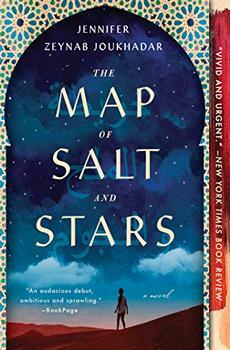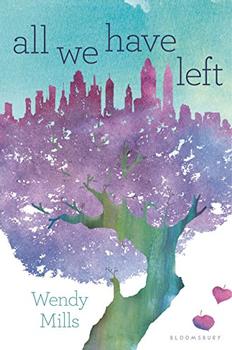Summary | Excerpt | Reviews | Beyond the book | Read-Alikes | Genres & Themes | Author Bio

Winter in Vermont is dark. My alarm wakes me up at 5:50 in the morning, and my 4-year-old daughter (who has often managed, at some point, to crawl into bed with me) opens her eyes and says, "But it's still night." And I can't help but agree with her. It is pitch black outside, it is tough to distinguish between reality and dream, and every cell in my body wants to fold back in on itself and sleep. The landscape of darkness is fatiguing. In its vast and seemingly endless sameness - no visible contours, no rises and falls, no shades of color - it is tough to find a sense of possibility. Of curiosity. Of hope.
But of course darkness - like all things - is relative. Vermont may seem dark to me, but I haven't been buried beneath the steel and plaster and wood of a hospital that has fallen in an earthquake.
Shorty has.
In Darkness, by Nick Lake, begins with Shorty, trapped beneath the rubble of the hospital where he was being treated for a gunshot wound. He has been caught in the 2010 earthquake that rocked Haiti.
The story begins - and continues - there. Shorty is in utter and complete darkness. It is from this place of not knowing whether he will live or die that he tells the story of his fifteen years living in the slums of Haiti: the choices he made for survival, his search for his twin sister, and his sense of the social and political landscape of this complicated country. Interwoven with Shorty's confessional is the third person account of Toussaint l'Ouverture, the revolutionary leader who led a slave rebellion and made Haiti a republic (see 'Beyond the Book').
Both threads of In Darkness - Shorty in 2010 Haiti and Toussaint in 18th century Haiti - are rich in detail and intensity. Nick Lake does a stunning job using sparse, stark prose to paint realistic and poetic pictures of both time periods. His respectful incorporation of the vodou culture woven together with blinding, brutal truths (machete fights, babies in garbage cans, bloodshed on the battlefield) creates a heart-wrenching glimpse of both the history and the present-day realities for the people of Haiti. It is not an easy read. Not by a long shot. But it is a gripping one. An honest one.
"Actually the whole writing period was a very strange experience," says Nick Lake on his website, "and one that I still don't quite understand. On several occasions I looked up from my laptop, having written thousands of words, with absolutely no recollection of what I had just written... In [vodou], worshippers can be 'mounted' by the spirits, the lwa, and possessed. That was what the experience of writing this book felt like: it felt like Shorty and Toussaint wrote it through me. Even now when I look through the text it doesn't feel like my book."
Nick Lake has done something extraordinary with In Darkness. By accomplishing the feat of connecting Shorty and Toussaint - both viscerally and magically - he has created a sense of hope. He has constructed, perhaps, the only paradigm that can truly allow hope to rise up out of utter despair: the act of remembering; the process of intertwining the past and the present; finding the threads that bind one to another, learning from mistakes, and holding tight to the truth. Nick Lake does this in a creative, complicated, devastating, and, ultimately, hopeful way.
In Darkness is a powerful, violent story. It is suitable for both teens and adults who can handle brutal, descriptive detail. It is absolutely worth reading and will leave the reader wanting to know more about Haiti's incredible history.
Additional Info
To learn more about the author and to interact with him online, visit Nick Lake's Facebook page.
![]() This review was originally published in The BookBrowse Review in February 2012, and has been updated for the
February 2014 edition.
Click here to go to this issue.
This review was originally published in The BookBrowse Review in February 2012, and has been updated for the
February 2014 edition.
Click here to go to this issue.

If you liked In Darkness, try these:

by Zeyn Joukhadar
Published 2019
This rich, moving, and lyrical debut novel is to Syria what The Kite Runner was to Afghanistan; the story of two girls living eight hundred years apart - a modern-day Syrian refugee seeking safety and a medieval adventurer apprenticed to a legendary mapmaker - places today's headlines in the sweep of history, where the pain of exile and the triumph...

by Wendy Mills
Published 2017
Winner of the 2016 BookBrowse Award for Best Young Adult Novel
Interweaving stories from past and present, All We Have Left brings one of the most important days in our recent history to life, showing that love and hope will always triumph.
Finishing second in the Olympics gets you silver. Finishing second in politics gets you oblivion.
Click Here to find out who said this, as well as discovering other famous literary quotes!
Your guide toexceptional books
BookBrowse seeks out and recommends the best in contemporary fiction and nonfiction—books that not only engage and entertain but also deepen our understanding of ourselves and the world around us.